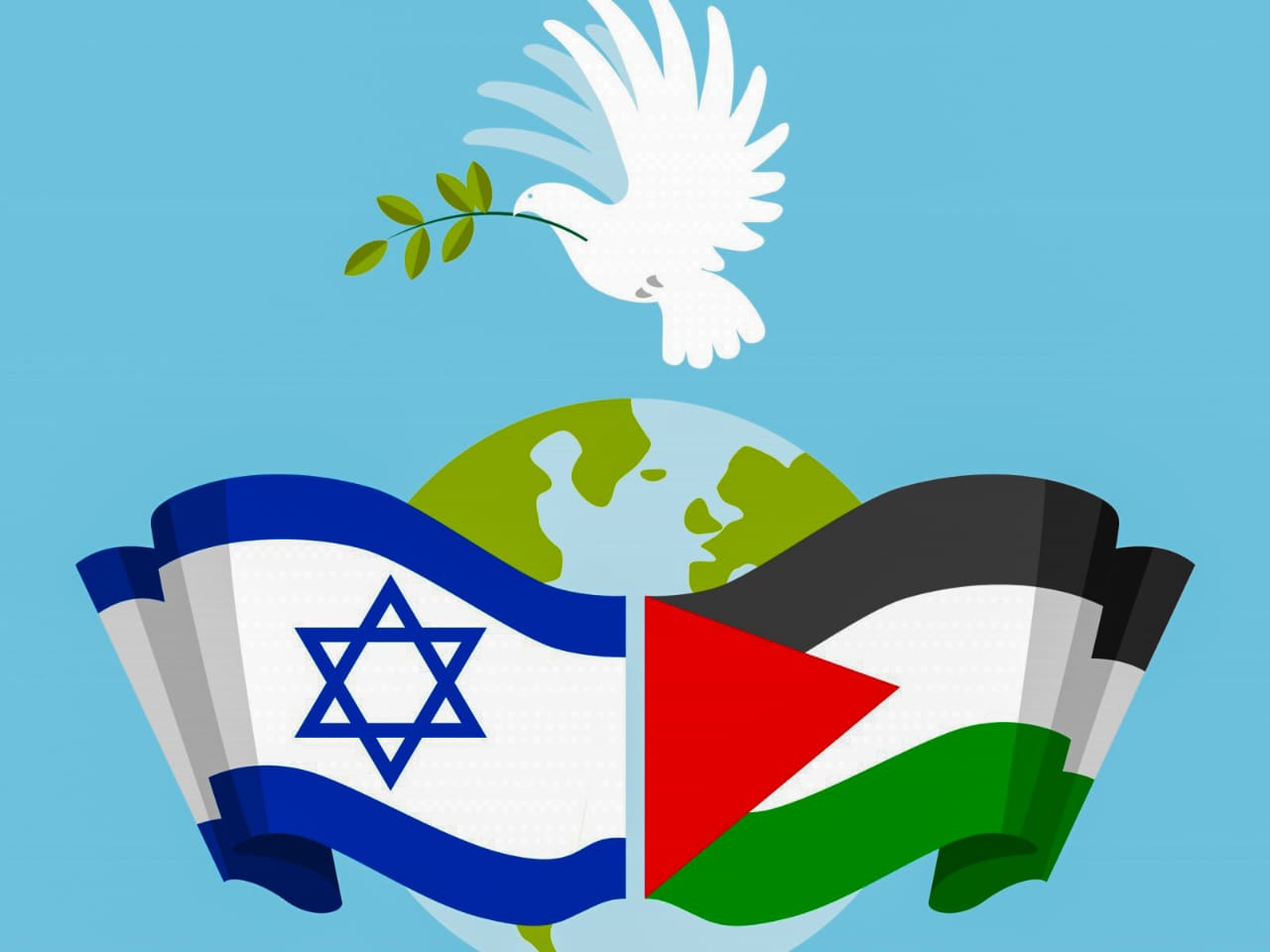Currently making headlines worldwide, the Israel–Palestine ‘conflict’ has been a source of tensions in West Asia for well over a century, from its genesis in the Zionist movement to the latest altercation between the State of Israel and Hamas. The Zionist movement, initiated to create a national homeland for the Jews in historic Palestine, witnessed significant Jewish immigration into the land in the nineteenth century. This led to land purchases by Jewish organizations and culminated in a full-blown conflict. Moreover, this period witnessed profound shifts in power, colonialism, and nationalism, setting the stage for a ‘conflict’ that persists to this day.
World War I and the Dissonant Balfour Declaration (1917)
The First World War was the defining moment in the history of the conflict, resulting in the dissolution of empires and the redrawing of political boundaries. The demise of the Ottoman Empire and Britain’s successive assumption of the mandate over Palestine marked a significant turning point in West Asia. The 1917 Balfour Declaration demonstrated the British government’s support for the establishment of a national home for the Jewish people in Palestine. Jewish immigrants regarded it as a ray of hope signifying new beginnings, while the Palestinian Arabs, the majority at the time, considered it a grave betrayal—a declaration made without their consent.
Increasing anxieties in the interwar period
The unprecedented influx of Jewish immigrants faced powerful opposition from the Arab population during the interwar period. The British mandate often struggled to regulate the situation, despite its initial commitment to protecting the civil and religious rights of the non-Jewish communities in Palestine. Moreover, the Arab revolt of 1936–1939, largely seen by some scholars as a Palestinian uprising against British and Jewish influence, brought to light the deep-seated frustration and resistance that had been brewing throughout the period.
The 1947 UN partition plan and its aftermath
The 1947 United Nations partition plan is considered a watershed moment, especially in the lead-up to the first Arab–Israeli war. It proposed the establishment of separate Jewish and Arab states in Palestine, including Jerusalem under international administration. The plan was overwhelmingly praised by Jewish leaders but vehemently rejected by the Arab states. India, a significant player in the Global South, voted in favor of the plan, while Indonesia, another prominent player, supported the Palestinian cause. What followed is recorded in history as the first Arab-Israeli war, which officially established the Israeli state in May 1948. The war concluded with a 1949 armistice, leaving Israel in control of more land than had originally been allocated in the UN plan. By the end of the war, Egypt and Jordan had seized control of the Gaza Strip and West Bank, respectively.
The next major geopolitical event: The six-day war in 1967
Israel launched a pre-emptive strike against Egypt, Jordan, and Syria in the Six-Day War, leading to its control over the Gaza Strip, West Bank, East Jerusalem, and the Golan Heights. This marked the beginning of its occupation. Pakistan expressed deep sympathies for the Arab states, while Iran, another significant Global South power, expressed support for the Palestinian cause but also developed closer relations with Israel in the 1960s.
The 1990s and the Oslo Accords
The 1990s witnessed the signing of the Oslo Accords, which aimed to address the status of the West Bank and Gaza Strip by creating a framework for Palestinian self-governance. Unfortunately, the resolution was short-lived. South Africa, having experienced apartheid, was sympathetic toward the Palestinian cause, welcoming the Accords but emphasizing the importance of a comprehensive solution.
The Camp David II summit in 2000 and the 2001 Taba talks
The Camp David II Summit in 2000, attended by the then-Israeli Prime Minister Ehud Barak and Palestinian leader Yasser Arafat, advanced the mandate for a potential two-state theory. The 2001 Taba talks continued the discussion but did not yield results. Pakistan consistently expressed solidarity with the Palestinian delegation, and India also voiced support for the Palestinian delegation’s demands during the Summit.
Following multiple breakdowns and increasing hostility
Following multiple breakdowns and increasing hostility, the Quartet on the Middle East—the United States, Russia, the European Union, and the United Nations—proposed a series of steps in 2003 to amicably resolve the conflict, reiterating the two-state solution. However, the road map for peace faced numerous barriers to implementation.
Shockwaves of the Israel–Palestine ‘Conflict’: Current trends in South Asia
Over the years, the multidimensional impact of the Israel–Hamas conflict has created an intricate web of economic instability, energy dynamics, and pressing humanitarian concerns.
Economic tremors: Oil prices and energy woes
In the wake of the Israel–Hamas clash, South Asia’s economic landscape appears increasingly precarious. On the brink of economic collapse, Sri Lanka and Pakistan are now seeking financial support from international institutions due to external debt, power shortages, and extreme inflation. Bangladesh also faces instability, having received a precautionary loan of US $4.7 billion from the International Monetary Fund (IMF). Meanwhile, Nepal grapples with widening trade deficits and diminishing foreign exchange reserves, further contributing to the region’s economic instability.
The global economy is experiencing turbulence as the war in West Asia pushes oil prices closer to an ominous $90 per barrel mark. This surge has generated worldwide repercussions given the current “higher for longer” interest rate scenario.
Oil-import-dependent South Asian nations remain particularly vulnerable. Pakistan, as a major importer of crude oil and refined petroleum products, faces escalating import costs. India, as the third-largest global crude oil importer, also feels the impact. Its ambitious goal of reducing oil imports has been threatened by these price hikes, endangering economic stability. Bangladesh’s reliance on oil and petroleum products makes it equally sensitive to oil price fluctuations, and Nepal, heavily dependent on fuel supplies from India, is no stranger to supply disruptions.
Humanitarian Concerns
As the Israel–Hamas conflict escalates, South Asian citizens working or residing in Israel are facing increasing uncertainty, making repatriation efforts crucial for ensuring their security. In response to the deaths of 10 Nepali students, Nepal has taken a proactive stance, arranging special Nepal Airlines flights to repatriate its citizens, particularly Nepali students and caregivers in Israel. The Nepali embassy in Israel has established a hotline for its citizens wishing to return home. So far, nearly 400 Nepalis have registered for evacuation.
Similarly, the Indian government has launched “Operation Ajay” to facilitate the return of Indian citizens from Israel and Palestine through special chartered flights, with the Indian Navy on standby. This action underscores the commitment to the safety and well-being of Indian nationals abroad.
The conflict has also impacted Sri Lankan citizens living in the region, with one individual sustaining minor injuries and two others reported missing. The Sri Lankan government, in collaboration with its embassy in Israel, is actively working to ensure the safety of their citizens employed in Israel. The current circumstances reiterate the need for urgent action and diplomatic engagement to protect the interests and well-being of South Asian citizens affected by the conflict.
Diplomatic alignment
The diplomatic landscape in South Asia is undergoing a significant transformation in response to the Israel–Hamas conflict. Several South Asian nations have issued statements and taken stances on the matter, reshaping the region’s diplomatic dynamics. Afghanistan’s Ministry of Foreign Affairs has condemned Israel’s actions and expressed solidarity with Palestine. India’s Prime Minister Narendra Modi has tweeted expressing his deep shock at the terrorist attacks in Israel and extending thoughts and prayers to the innocent victims and their families. What makes his statement particularly remarkable is the history of India’s diplomatic relationship with Israel. Until as recently as 1992, India had no formal diplomatic ties with Israel. However, the PM’s statement underscores the great strides that the India–Israel relationship has made in the past few decades and highlights India’s firm stance of solidarity with Israel during this crisis.
What lies ahead?
The complex and persistent dynamics of the Israel–Palestine situation, which have long since escalated beyond a conflict, defy easy solutions. The intricate web comprising various actors has reverberated far beyond West Asia, sending shockwaves into South Asia and impacting economies, diplomacy, and human lives. Although the outcome remains uncertain, one thing is clear: as things stand, there will be no winners.
Elias Sebin & Rahul Yadav
(Elias Sebin is currently pursuing a Master’s degree in International Relations from South Asian University, New Delhi. His areas of research interest include the geopolitics and social dynamics of the Latin American, West Asian, and African regions as well as gender dynamics and intersectional feminism in South Asia. An avid traveller on a shoestring budget, his short fiction and travelogues have previously been published in several online publications including LiveWire, The Reading Room Co., and Gulmohur Quarterly.
Rahul Yadav is a research student in the International Relations department at South Asian University and a former student of the Political Science department at the University of Rajasthan. Due to his deep interest in social constructivism, Rahul believes that knowledge is a result of the process of acquisition through experiences embedded in social aspects rather than being an absolute universal truth. He attempts to examine decisions made by nations and governments from the perspective of societal norms, emotions, and beliefs. Additionally, he shows an interest in Hindi literature, cultural songs of farmers, and intersectionality.)
References
[1] Fishman, L. A. (2019). Jews and Palestinians in the late Ottoman era, 1908-1914: claiming the homeland. Edinburgh University Press.
[1] Stein, K. W. (1920). Zionist land acquisition: A core element in establishing Israel. The British Mandate in Palestine: A Centenary Volume, 2020, 189-204.
[1] Simpson, W. W. (1944). The Jewish National Home. Blackfriars, 25(287), 63-67.
[1] Swedenburg, T. (2003). Memories of revolt: The 1936–1939 rebellion and the Palestinian national past. University of Arkansas Press.
[1] United Nations (2021). Origins and Evolution of the Palestine Problem: 1917-1947 (Part I). https://www.un.org/unispal/history2/origins-and-evolution-of-the-palestine-problem/part-i-1917-1947/ (Accessed 10 October 2023).
[1] ibid.
[1] International Monetary Fund (2023). IMF Executive Board Approves US$3.3 Billion Under the Extended Credit Facility/Extended Fund Facility and US$1.4 Billion Under the Resilience and Sustainability Facility for Bangladesh. https://www.imf.org/en/News/Articles/2023/01/30/pr2325-bangladesh-imf-executive-board-approves-usd-ecf-eff-and-usd-under-rsf (Accessed 10 October 2023).
[1] Gohel, A. (2023). Israel-Palestine War: Impact on global economy, India-Israel trade, financial markets. https://www.livemint.com/economy/israelpalestine-war-impact-on-global-economy-india-israel-trade-financial-markets-11696837346161.html (Accessed 10 October 2023).
[1] Alam, F., Saleque, K., Alam, Q., Mustary, I., Chowdhury, H., & Jazar, R. (2019). Dependence on energy in South Asia and the need for a regional solution. Energy Procedia, 160, 26-33.
[1] ibid.
[1] ibid.
[1] Ministry of Foreign Affairs, Nepal (2023). Press Statement, 7 October. https://mofa.gov.np/press-statement-2/ (Accessed 9 October 2023)
[1] Press Trust of India (2023). All Nepali students in Israel shifted to secured locations, says government. https://www.indiatoday.in/world/story/all-nepali-students-in-israel-shifted-to-secured-locations-says-government-2447285-2023-10-11 (Accessed 11 October 2023).
[1] Embassy of India, Israel (2023). Indian Community in Israel. https://www.indembassyisrael.gov.in/pages?id=xboja&subid=wdLwb (Accessed 10 October 2023)
[1] The Economic Times (2023). Pakistan, Afghanistan show support to Palestine, calls for “cessation of hostilities”. 9 October. https://economictimes.indiatimes.com/news/defence/pakistan-afghanistan-show-support-to-palestine-calls-for-cessation-of-hostilities/articleshow/104245296.cms?from=mdr (Accessed 10 October 2023).




